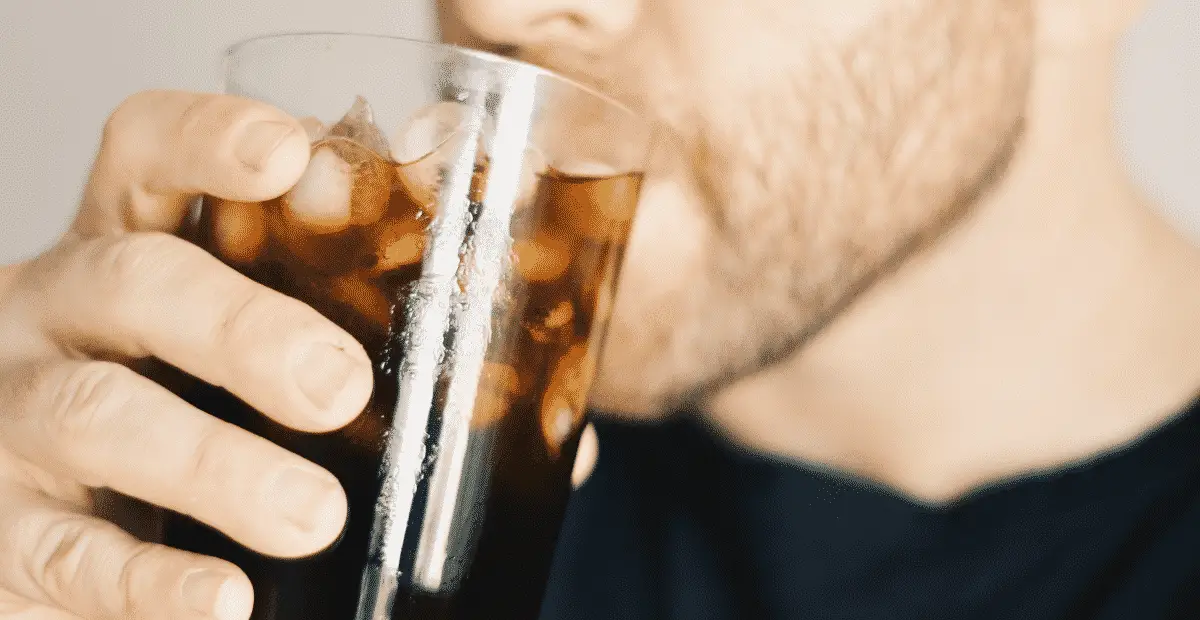There are a lot of misunderstandings when it comes to Cold Brew Coffee. One of the main ones is when does cold brew coffee go bad.
You can find different sources stating from 2-14 days. But you can also stumble on people claiming it can last longer. Today we will go on a myth-busting journey together. We will explore these multiple claims in this article.
So, is there a fixed number of days? At the end of this article, you will be able to respond to this question and share your wisdom with other fellow cold brew coffee lovers!
How do you know if cold brew has gone bad?
The easiest and most reliant method is the old-school way. Just try it! However, coffee is such a complex topic. This is why before we can determine (before drinking it, keep reading!), if our coffee has gone bad, you need to consider a few other things.
Each cold-brewed coffee is different.
One of the reasons we love our carefully prepared ground coffee is: we prepare it just the way we like! Every person uses almost the same ingredients, but each ingredient’s quality and quantity will be different. Many variations are pushing the boundaries further. But the fact remains: every cold brew coffee is different. This is the first hint that helps us understand why there are so many misconceptions around the timing when a cold brew coffee actually expires.
Is coffee freshness a factor to consider
All coffee lovers (even those that don’t love it) enjoy the smell of freshly brewed coffee. How it entangles our emotions and draws us is dreamlike. It can often help us recall distant yet positive memories. That’s one of the many reasons we want our days to begin with a cup of coffee. In fact, Dr. Eugene Chan, Senior Lecturer in Marketing at the Monash Business School (also an Associate Professor of Marketing and Psychology), said in a statement: “Smelling coffee gives rise to the beverage’s psychoactive, arousing effects.”
When the aroma is gone: we will avoid drinking the espresso. It simply doesn’t feel (read smell) the same way. The aroma is indeed a relevant factor for an espresso. While that’s interesting, you can’t build your argument around that statement for a cold-brewed coffee tough.
The aroma doesn’t have the same effect on cold brew coffee, says Prof. Dr. Chahan Yeretzian. This means you do not need to consider aroma as a hint of whether your cold brew coffee has gone bad (this is the second hint).
In fact, Dr. Yeretzian is the guy who established the first postgrad degree on coffee in the World. In one of his interviews, he dismantled the five myths about coffee freshness. He said that for “cold brews and nitro brews but also other products, freshness is more relative.” Also, he states that the flavor is “the result of extraction… this allows for longer storage”.
Here you have it, fellow addicts: the first misconception killed! You can’t know whether a cold-brewed coffee has expired based on its aroma. To find out whether our coffee has gone past its shelf life, we need to taste it.
What happens when it goes bad?
Before drinking the cold brew coffee that you suspect might’ve gone bad: apply some common sense. First, look into your coffee and make sure it didn’t start to develop any mold. You can usually find the first signs around the inside of the lid. Secondly, you need to check the coffee itself for pieces of mold. If your coffee is spotless, then you can proceed and taste it.
Once we taste it, our well acquainted (with coffee) organism will immediately alarm you if something isn’t right. If the cold-brewed coffee has gone bad, you will notice it will be acidic and very stale. However, you want a clear number (as in days) to determine whether at all to investigate your cup.
Well, keep on reading, the answer is below!
How long does cold brew last in the fridge?
We will again use the knowledge of Dr. Yeretzian. In his interview (mentioned previously), he says that a cold brew coffee in a fridge can last up to thirty (30) days without a sweat. While if it’s in a keg, it can last even longer.
We have just killed the second misconception (recall the ‘experts’ who claim up to 1 week or so)! But here we should again draw your attention to a couple of things. Our creativeness, when we prepare our cold brew coffee, is also affecting its shelf life. So if you want to preserve it for the longest possible time: save the concentrate without any ‘seasonings.’
Let’s go over some of the most frequent things we do that affect our coffee’s shelf life.
- Mixing the concentrate with water shortens its shelf life to 2-3 days,
- Mixing it with milk makes it undrinkable the following day and
- Adding spices will contaminate the concentrate with various bacteria.
BONUS TIP: Whenever you get your cold-brewed coffee out of the refrigerator, you are shortening its shelf life. This happens due to the drastic difference in the temperature. Therefore it might be a smart idea to split your concentrate in more dozes. In this manner, you open a doze and use it for your cup, while the rest will remain unaffected.
FUN FACT: You can measure your coffee’s freshness by measuring its CO2 (good luck with this one!).
How long does cold brew caffeine last?
Caffeine doesn’t evaporate like water. A food technologist named Oliver Jader Contreras says that “Caffeine is a water-soluble chemical that does not sublimate nor evaporate into the environment at ambient or refrigerated temps.” We may say that there will be caffeine in your mug until there is coffee in front of you. And here is our third misconception killed!
FUN FACT: Coffee oils and fat aromas will dissolve fast out of your coffee. That is why cold-brewed coffee is helping you lose weight compared to regular coffee. Some may say it will help you “increase your post-energy expenditure, or after-burn effect.”
To drink or not to drink.
When it comes to beverages, there is rarely as resilient drink as a cold brew coffee. Scientists have studied and concluded that it can stay comfortably thirty days in your fridge and up to sixty days if you put it in a keg. But if you want to maintain its quality in the fridge, it’s not advisable to mix it with other ingredients. Instead, we advise you to keep your concentrate in multiple containers so you can enjoy its unique taste longer!

